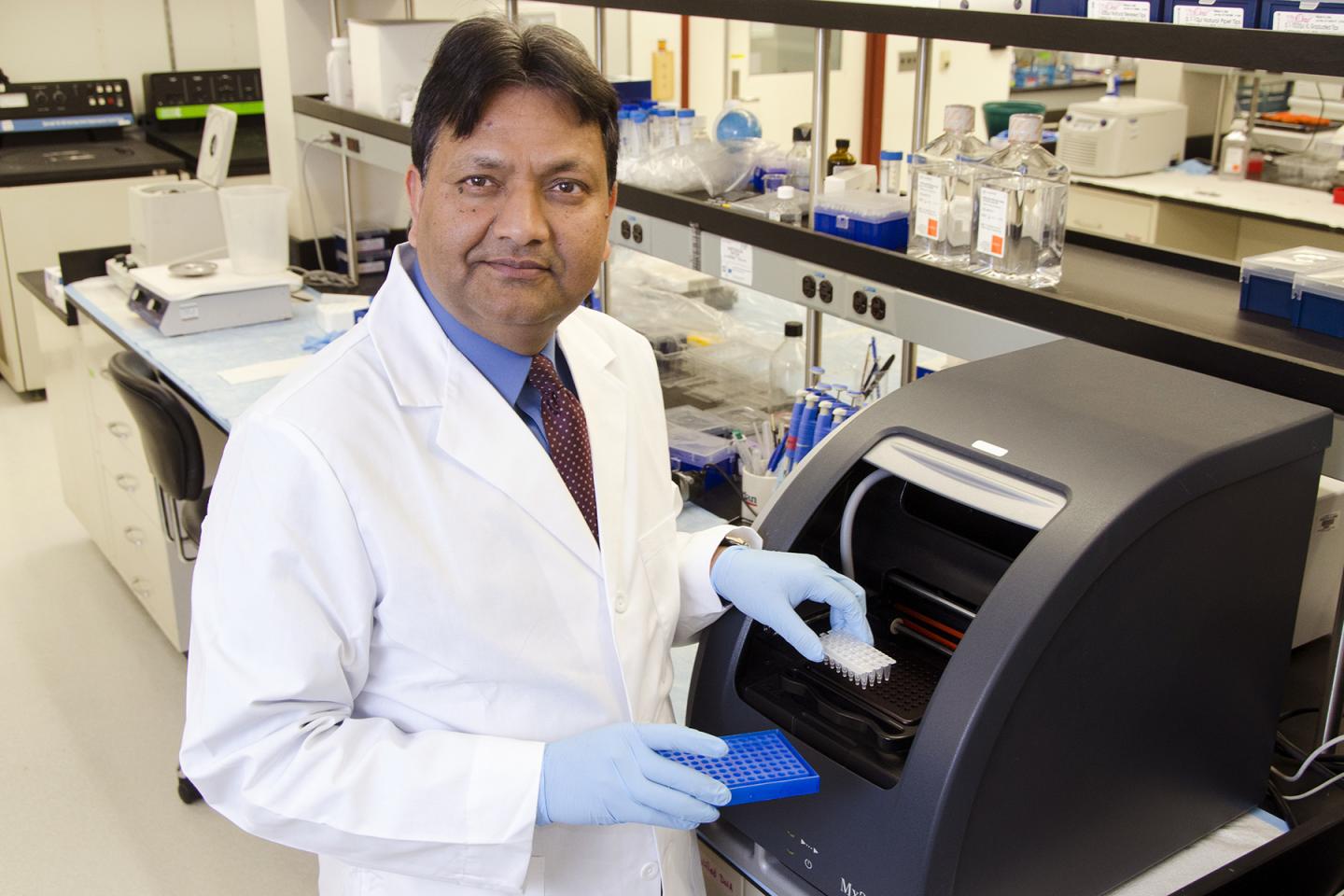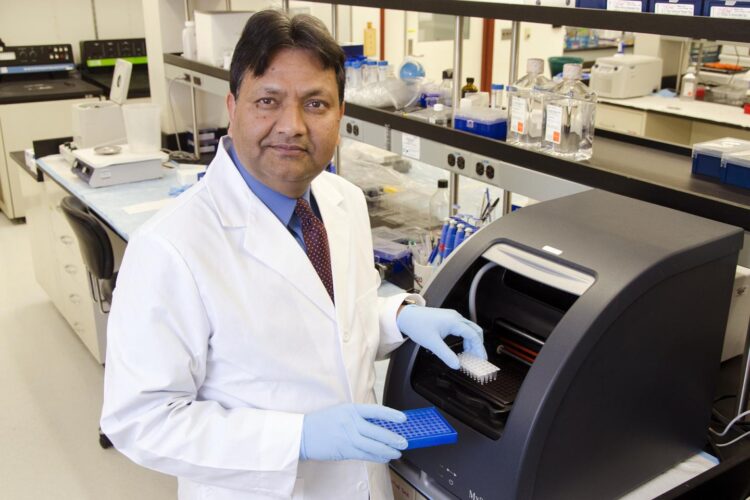Continued research will test alcohol effects on whole epigenome and brain function

Credit: UIC Photos Services
The University of Illinois at Chicago received $8.2 million from the National Institute on Alcohol Abuse and Alcoholism to continue the Center for Alcohol Research in Epigenetics and its research on how alcohol affects genes through epigenetics — chemical changes to DNA, RNA or proteins that alter the expression of genes without directly modifying them.
“With this new grant, we can study how alcohol interacts with the epigenome to regulate gene function in the brain and drive the pathophysiology of alcohol use disorder, or AUD,” said Subhash Pandey, UIC professor of psychiatry and director of the Center for Alcohol Research in Epigenetics, or CARE. “We will use animal models of AUD to examine how these epigenetic changes mediate withdrawal symptoms and promote increased drinking. Then, this information will be translated to studies of human postmortem brain tissue from people that were suffering from an alcohol use disorder.”
First funded in 2015, the center is the first of its kind in the state of Illinois.
“We are the only center funded by the NIH-NIAAA to focus on epigenetic mechanisms in alcohol abuse disorders,” said Dr. Anand Kumar, UIC professor and head of psychiatry in the College of Medicine. “Dr. Pandey has assembled an outstanding team of basic and translational researchers that represents the best in the country in this unique research field.”
Researchers at the Center for Alcohol Research in Epigenetics have published more than 60 publications providing new insights to the biological mechanisms of alcoholism. According to Pandey, the center has paved the way for the alcohol research field.
“Since alcohol is an epigenetic drug, we wanted to gauge how alcohol interacts with genes in key brain regions to affect the brain’s function,” said Pandey, who is also a senior research career scientist at Jesse Brown VA Medical Center. “The majority of the research performed during the center’s first five years focused on gene expression changes — we have found that chronic alcohol use leads to changes in chromatin architecture that cause alterations in stress and synaptic-related genes in human postmortem and rodent brain tissues. With this new funding, we can continue our work and understand better how these epigenetic mechanisms mechanistically regulate the genome and thereby the neurobiology of alcohol use disorder.”
Most recently, researchers at the Center for Alcohol Research in Epigenetics discovered that adolescent use of alcohol led to changes in non-coding RNA in human postmortem amygdala and microRNA in rat amygdala that abnormally modified neuron activity in the brain, which could result in anxiety behaviors and promote drinking. CARE researchers also recently observed that long-term alcohol drinking in humans leads to abnormal DNA methylation and decreased glucocorticoid receptor gene expression in the prefrontal cortex, regulating stress mechanisms.
Through its community outreach program, the center supports high school students’ interest in science. The center engages with UIC College Prep High School students through research seminars and other educational opportunities to provide exposure to neuroscience research of alcohol addiction. It also works with UIC graduate students and medical scientist training program students to provide training on state-of-the-art technologies that relate to neuroscience research on addictive and psychiatric disorders.
###
Other UIC researchers who are involved with research at the center include Amy Lasek, Mark Brodie, Alessandro Guidotti, Dennis Grayson, Elizabeth Glover, Mark Maienschein-Cline, Marc Atkins, Amynah Pradhan, Harish Krishnan, Huaibo Zhang, John Peyton Bohnsack and Eleonora Gatta.
Media Contact
Jackie Carey
[email protected]
Original Source
https:/





